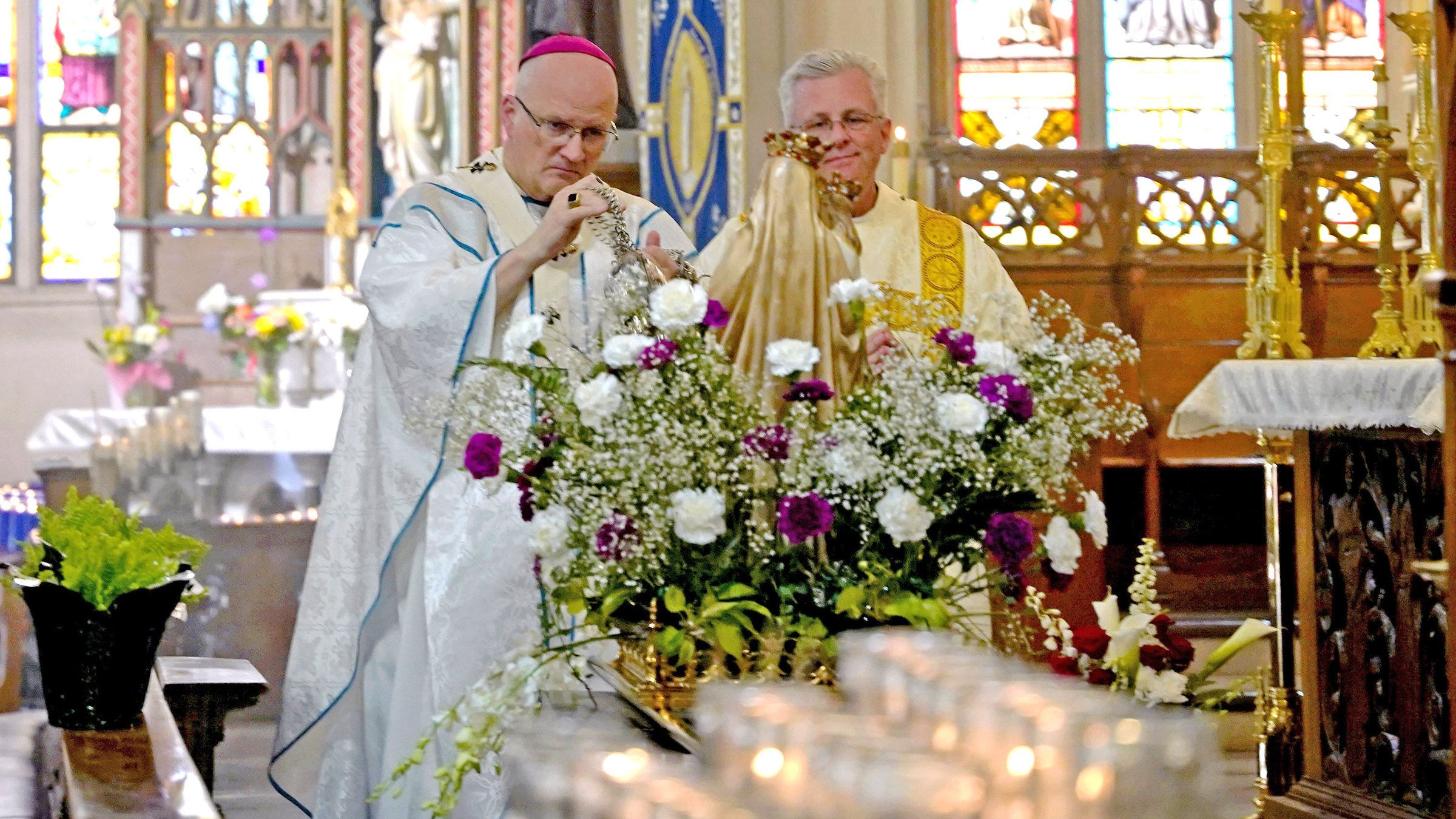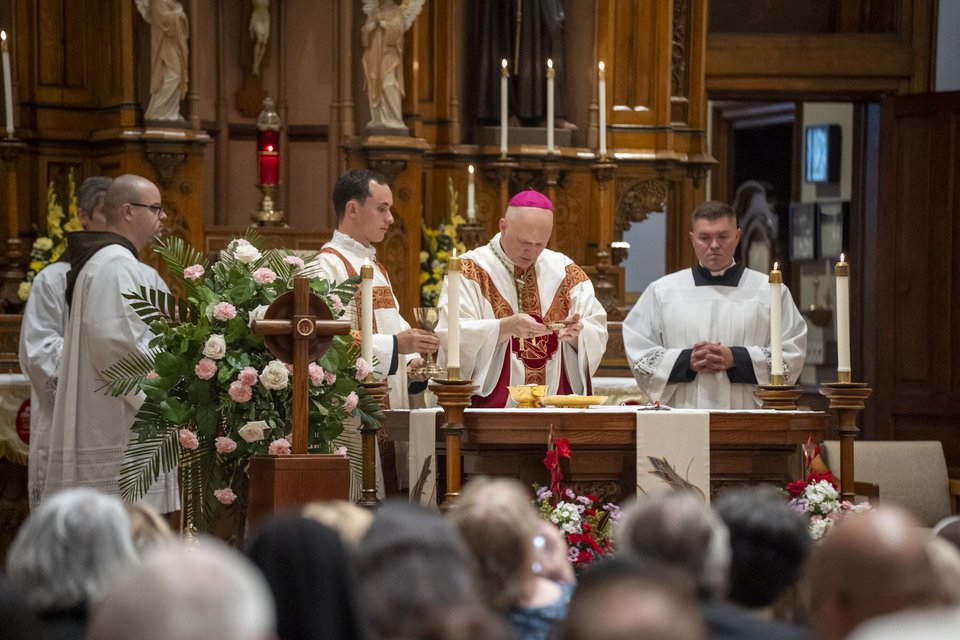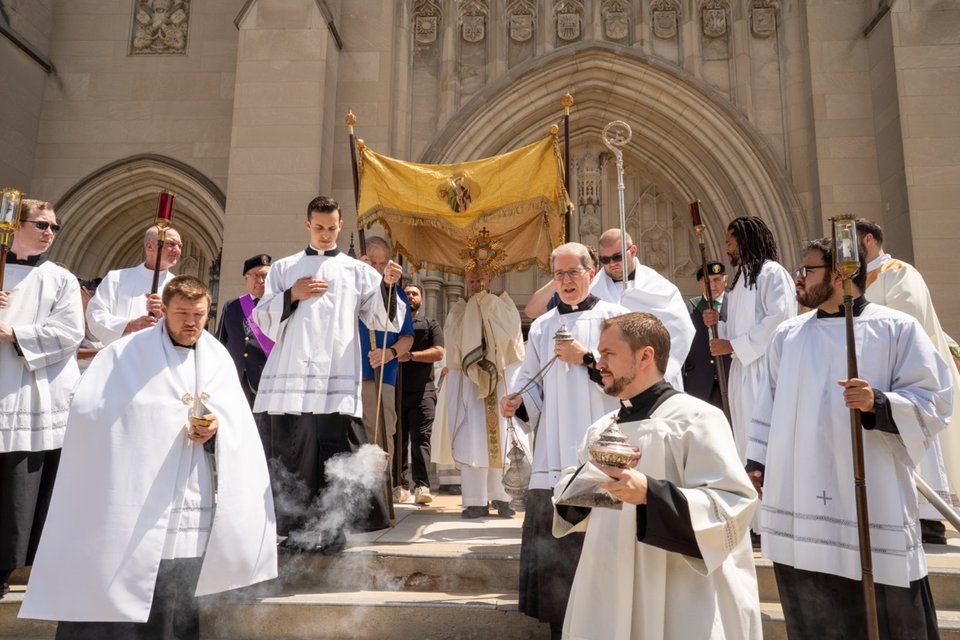Though hidden, Jesus' grandparents were 'instruments in the hand of God' for salvation, Archbishop Weisenburger says
DETROIT — On a hot summer day at the 139-year-old Basilica of Ste. Anne in southwest Detroit, the faithful packed the pews Saturday, July 26, to celebrate the feast day of Detroit’s patroness, St. Anne, and her husband, St. Joachim.
The feast day Mass, which also marks the end of the nine-day novena to St. Anne — each night represented by one of the many cultural groups who have made Ste. Anne’s and Detroit their home — was celebrated for the first time by Detroit Archbishop Edward J. Weisenburger.
Don't miss another story
Did you know you can get Detroit Catholic's latest daily or weekly articles delivered to your inbox? It's easy and free to sign up.
“It is really a privilege and joy for me to celebrate this liturgy in honor of our archdiocesan patron St. Anne and her husband, St. Joachim,” Archbishop Weisenburger said. “Moreover, to celebrate our archdiocesan patronal feast in this place made beautiful not only by the glass, the bricks, the stone, and the wood, but by the centuries of prayer that have been woven into the walls. This is a sacred spot, and we are blessed to be here.”
In his homily, Archbishop Weisenburger addressed the paradox of St. Anne and St. Joachim's lives: Despite being hidden figures and never actually mentioned in Scripture, their presence in the lives of Jesus and his Mother Mary is something for today's Catholics to be grateful.
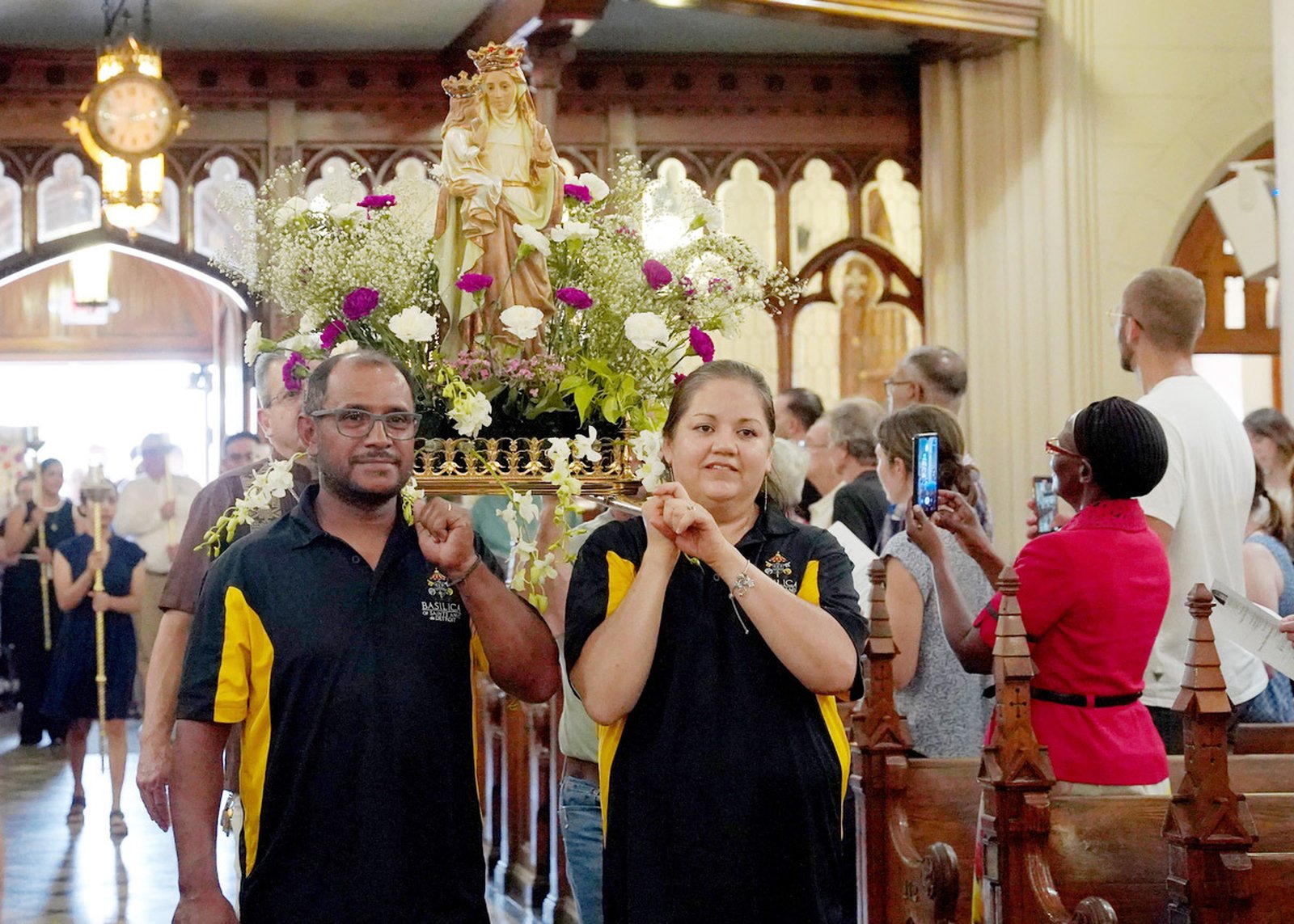
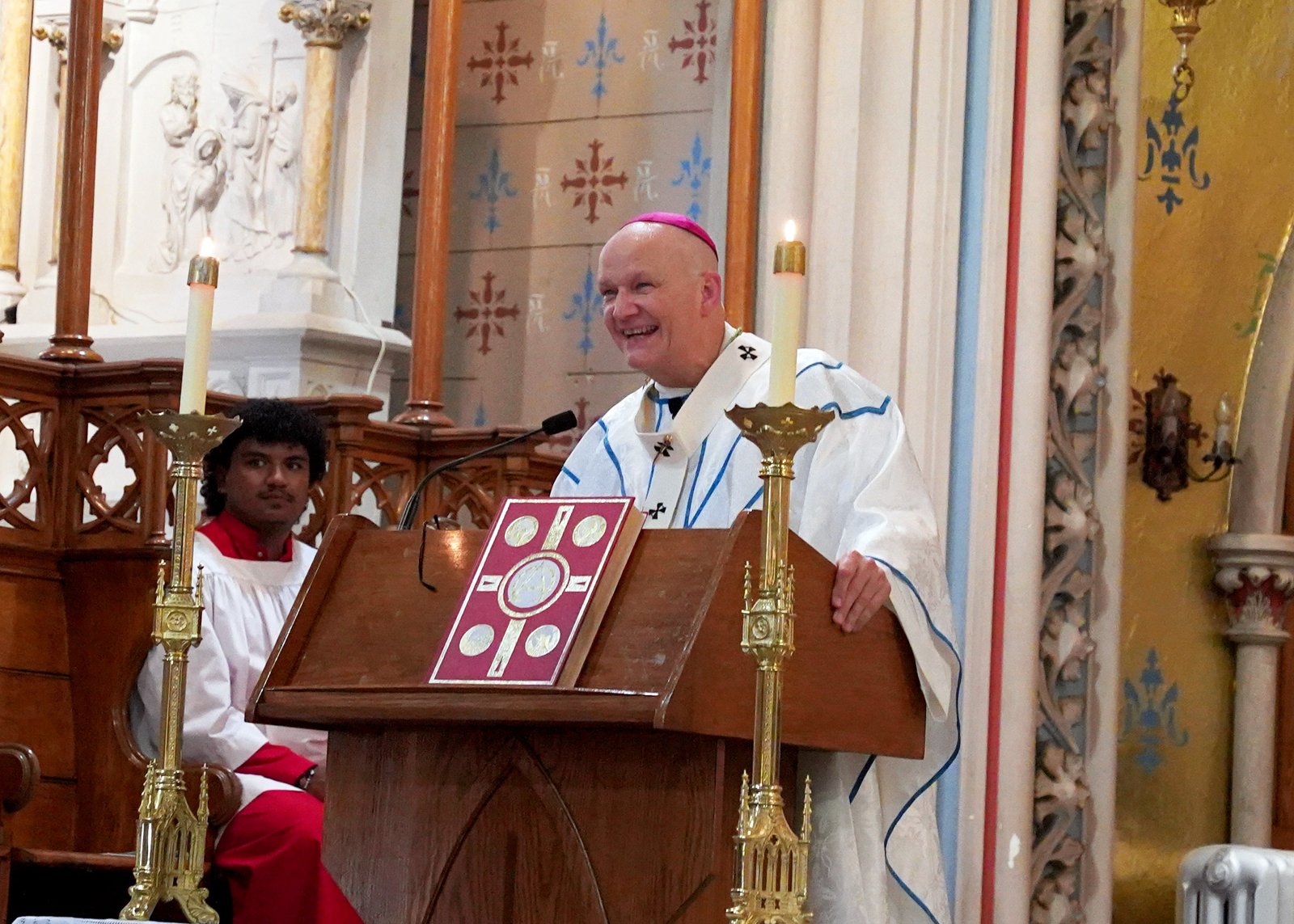
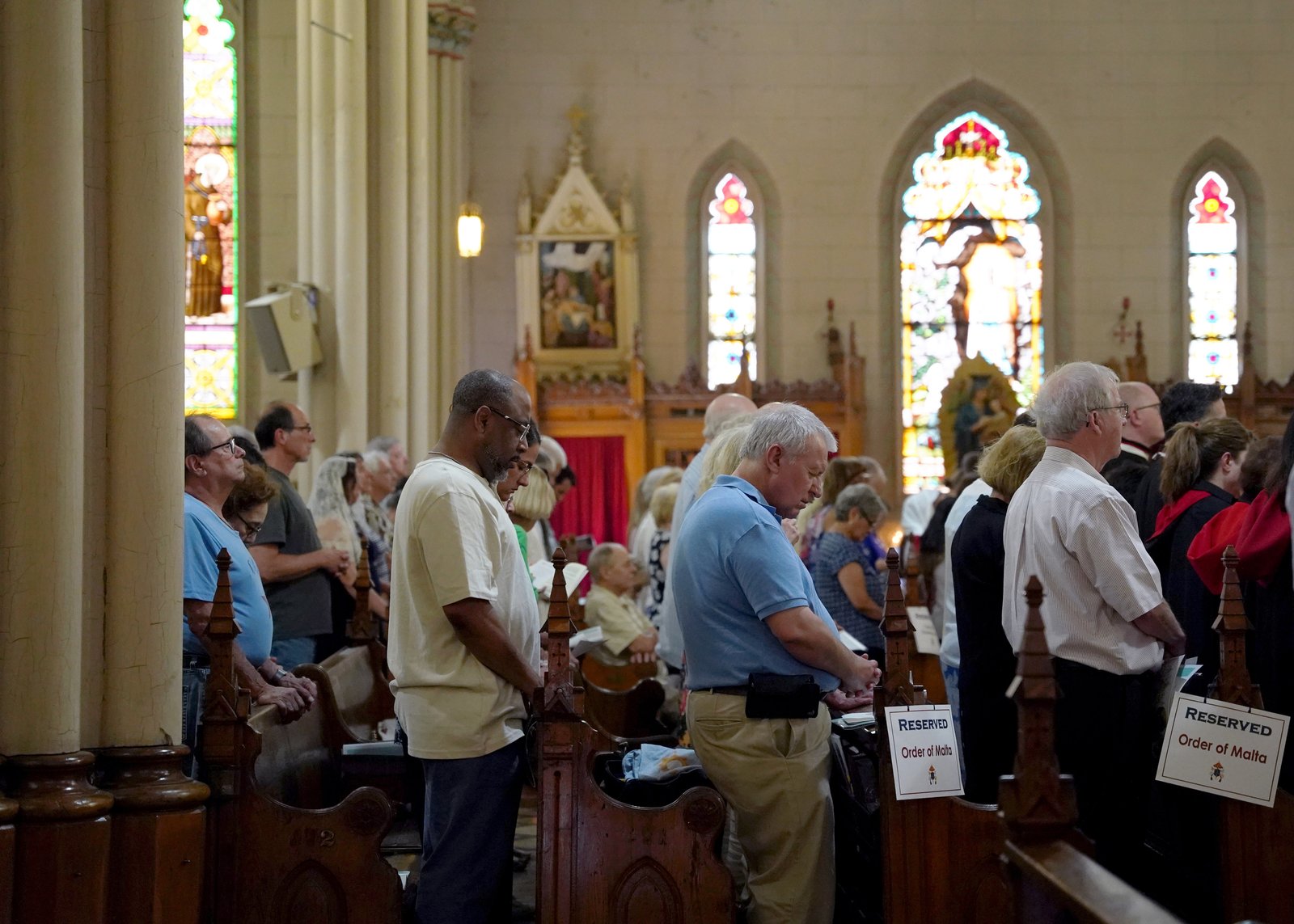
Behind great people of history, there is often someone who taught and guided them, just as Anne and Joachim — Jesus' grandparents and Mary's parents — likely did for Jesus and Mary, Archbishop Weisenburger said.
“As I pondered this Mass, I found myself asking, ‘I wonder who taught the little boy who grew up to be Pope Leo how to say his first Hail Mary? I wonder who taught the little boy who would become Michael Jordan how to dribble a basketball? I wonder who taught the little girl who would become Julia Child how to whisk an egg, or the little boys who would grow up to be Itzhak Perlman or Yo-Yo Ma to play their first scales on the violin or the cello? Or the young child who would grow up to become Rembrandt, how to hold a paint brush and dip it in a pool of color?’”
While the world acknowledges the greats of history, “it seems there's always someone in the background, often quietly committed, generous, and loving, not only recognizing the potential greatness in the child, but willing to sacrifice themselves to plant the seeds,” Archbishop Weisenburger said.
While St. Anne and St. Joachim are not mentioned in Scripture, they are known from other written sources, Archbishop Weisenburger explained. They stand in a long line of righteous people as God’s chosen ones, the Jews, yet they do not seek to draw attention to themselves.
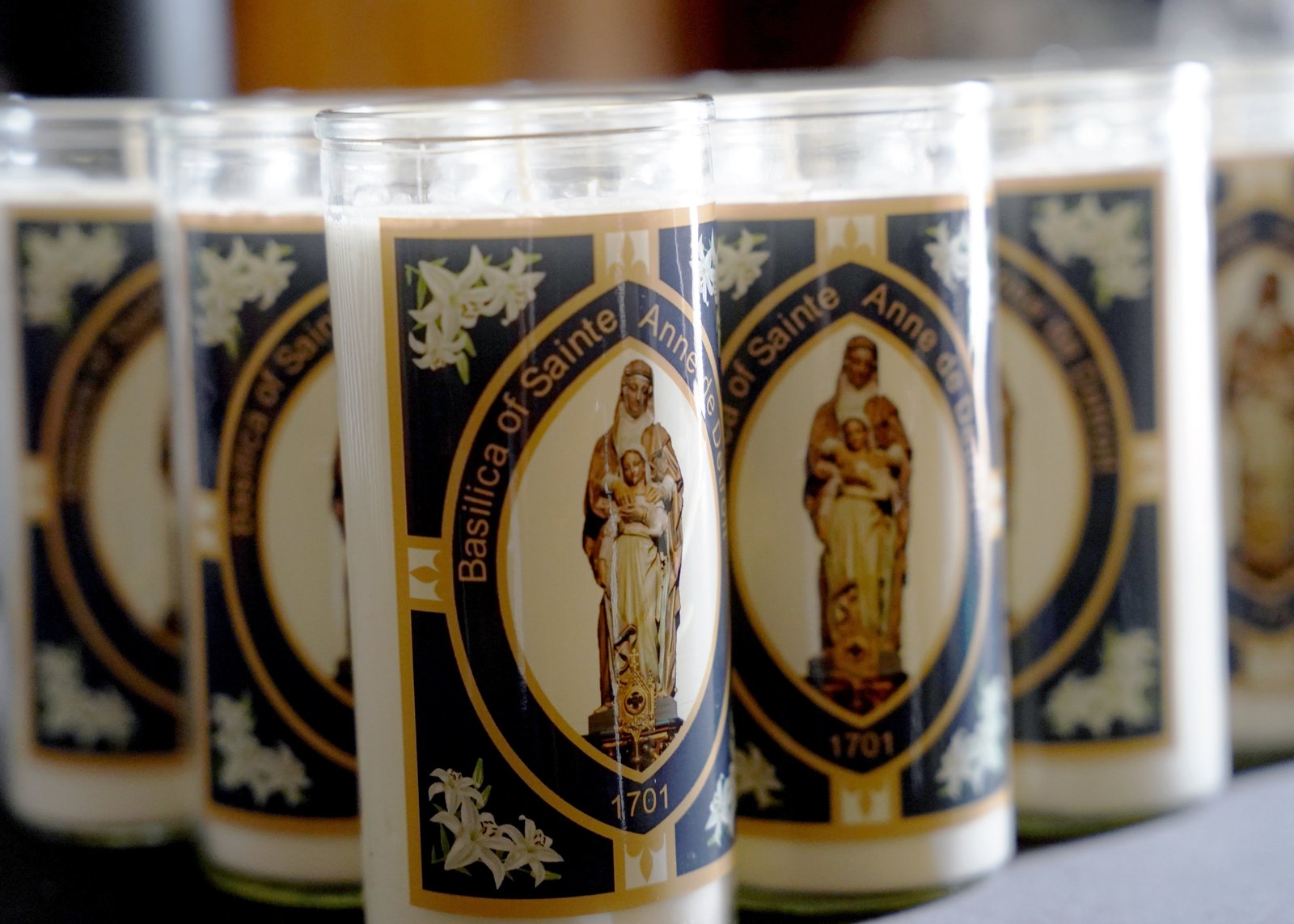
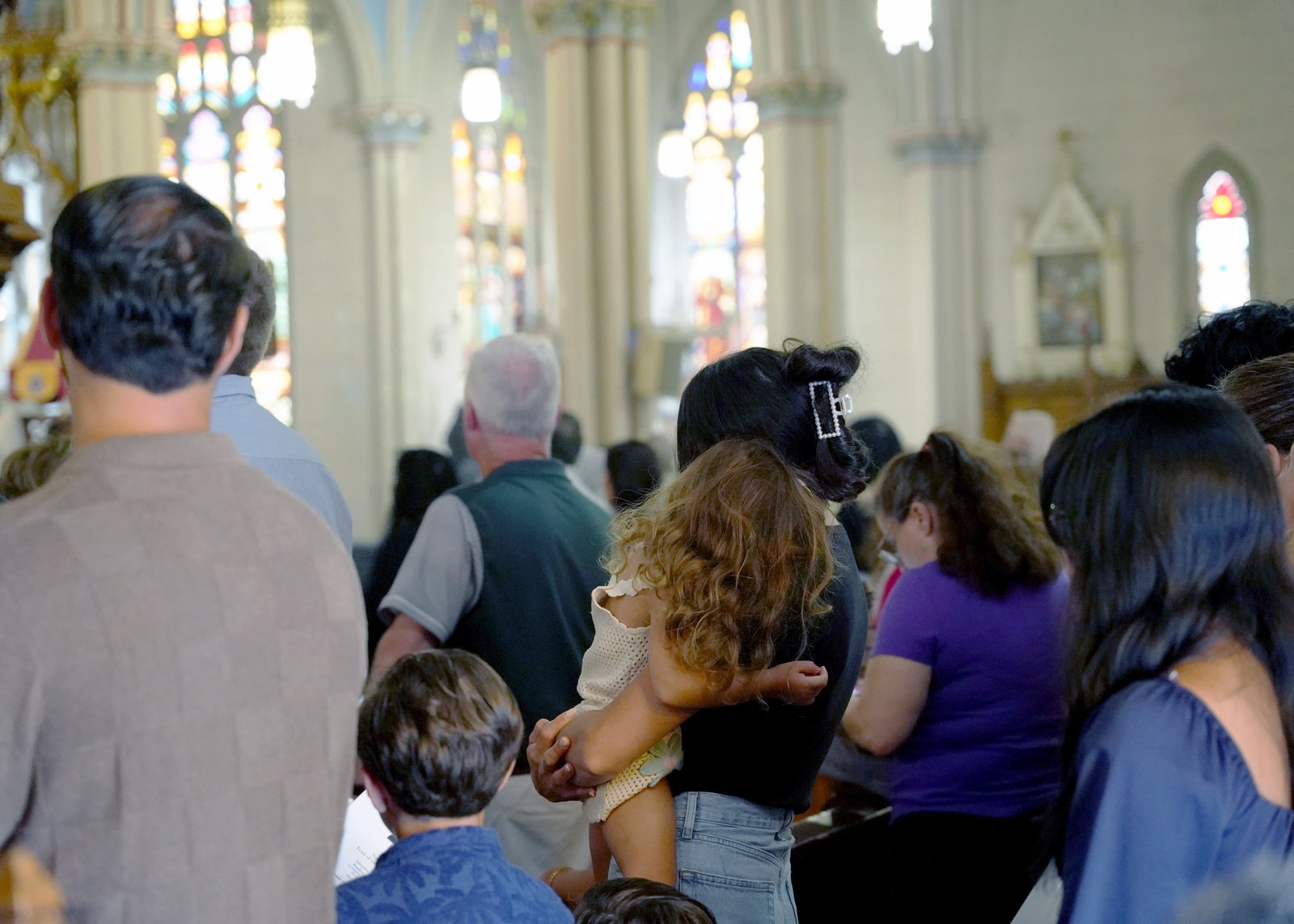
“They were instruments in the hand of God — links in a great chain of events, necessary for God’s word and willing to be at His service, perhaps knowing they were playing a critical role in salvation, perhaps not knowing,” Archbishop Weisenburger said.
“Is it not possible that in Jesus’s mysterious union, as human and divine, his grandmother and his grandfather planted seeds of their own in their grandson?" he continued. "Is it possible that even if they didn’t have direct influence on him, their loving welcome and nurturing of his mother, our Blessed Mother, was a sowing of seeds that would one day yield the richest of harvests?”
St. Anne and St. Joachim did not live to see Christ's ministry, but they helped to sow the seeds that would lead to salvation, the archbishop added.
In the same way, those who today teach and pass on the faith are deserving of love, admiration and gratitude, he concluded.
“In the end, maybe we don’t need to know who taught the boy who would become Pope Leo how to pray the Hail Mary. Maybe we don’t know who taught Itzhak Perlman to play his first scale on the violin, or Rembrandt, the little boy, to dip a paintbrush into the paint," Archbishop Weisenburger said. "May something of both of these great saints — most especially our patron, St. Anne — inspire us to embrace humility, quiet loving sacrifice, the hidden life of fidelity and, through our own witness to the faith, the task of planting seeds and allowing God’s word, no less profoundly, to unfold in us.”
Copy Permalink
Ste. Anne Feast days


